Service Sector
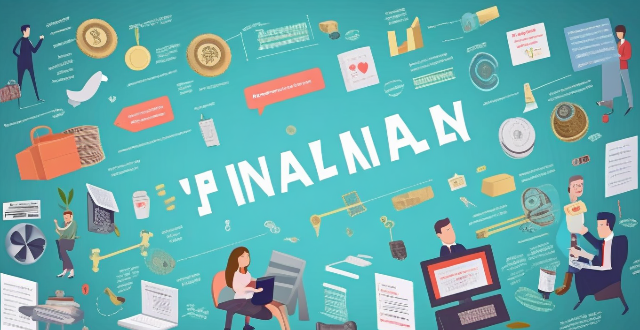
How does Fintech drive innovation in the financial sector ?
Fintech is driving innovation in the financial sector by enhancing efficiency, democratizing access to services, improving customer experience, facilitating financial inclusion, enhancing security and compliance, and fostering innovation and collaboration.
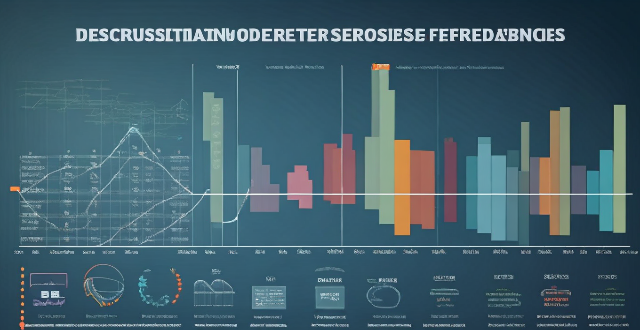
Can private sector investments play a significant role in climate financing ?
The article discusses the potential of private sector investments in climate financing, highlighting their current involvement and potential impact on various aspects such as access to larger pools of capital, innovation, risk management, and scaling up successful approaches. It also addresses challenges and considerations like alignment with public goals, transparency, inclusivity, and regulatory frameworks. The conclusion emphasizes the importance of collaboration between public and private sectors for effective utilization of private capital in climate action.

What are some best practices for climate risk management in the agricultural sector ?
Climate risk management is critical for the agricultural sector, which faces significant vulnerabilities due to changing weather patterns and extreme events. Key practices include assessing climate risks, integrating climate information into decision-making, enhancing ecosystem resilience, building human capacity, and planning financially with insurance. By adopting these strategies, farmers can adapt to climate change and reduce their risks, ensuring a more resilient agricultural sector.
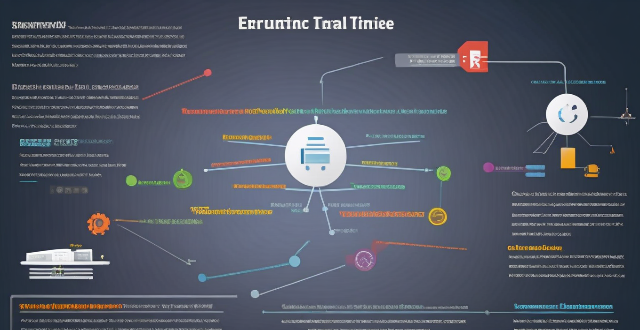
How can policymakers encourage private sector involvement in climate adaptation ?
To encourage private sector involvement in climate adaptation, policyTo encourage private sector involvement in climate adaptation, policy as creating incentives like tax policymakers can implement strategies such as creating incentives like tax breaks and subsidies, establishing clear regulations with compliance enforcement, facilitating information sharing through open data access and collaborative platforms, promoting public-private partnerships with joint projects and long-term commitments, enhancing capacity building via training programs and technical assistance, and recognizing and showcasing success stories through awards and media coverage. These steps will foster a collaborative environment where the private sector actively seeks opportunities to contribute to resilient and sustainable solutions for climate change challenges.

How can the energy sector reduce its water footprint through innovations in technology ?
The energy sector's substantial water consumption is a concern for sustainable development. Technological innovations, such as efficient cooling systems, advanced water treatment, renewable energy integration, smart water management, waste heat recovery, and improved desalination methods, can help reduce the sector's water footprint. These innovations offer benefits like resource conservation, cost efficiency, and reduced environmental impact, ultimately contributing to global water security.

Are iPhone parallel imports eligible for Apple's after-sales service ?
iPhone parallel imports can be eligible for Apple's after-sales service if they meet certain conditions, including proof of purchase, valid warranty, no tampering, and region compatibility.
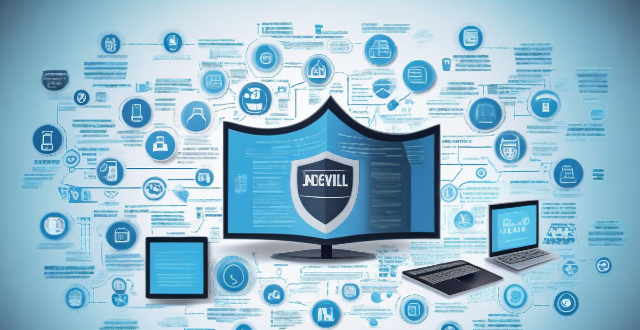
How does a VPN service work ?
A VPN (Virtual Private Network) is a service that encrypts users' internet traffic and masks their IP addresses to protect their privacy and security online. It consists of a client software installed on the user's device and a server that acts as an intermediary between the user and the internet. VPNs use tunneling protocols and encryption algorithms to establish secure connections, with options for both automated and manual configuration methods. They are particularly useful in masking users' IP addresses and ensuring data transmission security. However, some VPN services may impact internet speeds and raise privacy concerns if they collect and sell user data. When choosing a VPN service, consider its performance, reliability, and privacy policy.

How does economic recovery affect different industries differently ?
Economic recovery affects industries differently based on their reliance on consumer spending, investment, government policies, and global markets. Consumer discretionary sectors like retail and hospitality are highly sensitive to economic fluctuations but can rebound quickly with increased consumer confidence. The technology sector often remains resilient during downturns, with continued growth in segments like software and online services. Manufacturing may face challenges due to supply chain disruptions but can rapidly expand with demand recovery. Financial services benefit from improved credit conditions and increased lending activities. Healthcare is generally less affected by economic cycles and can grow with aging populations. Energy sector recovery depends on global demand and policy shifts towards renewable energy. Understanding these differential impacts is crucial for investors, policymakers, and businesses to navigate the changing landscape effectively.

How do I contact customer service for my mobile operator ?
How to Contact Customer Service for Your Mobile Operator
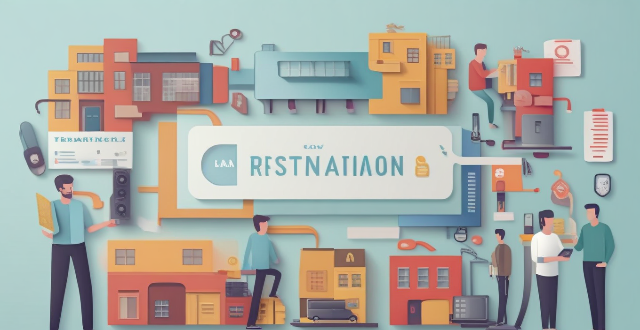
How can automation be used to improve customer service ?
Automation can significantly enhance customer service by streamlining processes, reducing errors, and providing consistent support. It enables personalized communication through chatbots and email automation, efficient processes via self-service options and backend automation, a consistent experience with standardized responses, cost-effective solutions through scalability, and continuous improvement using feedback loops. As technology progresses, the potential for automation in customer service will continue to expand, leading to more innovative ways to meet customer needs.

Why does my cell phone have no service in some places ?
Cell phone service can be affected by various factors, leading to no service or weak signal in certain areas. The main reasons include network coverage, physical obstructions, technical issues, and other external factors like weather conditions and congestion. It's essential to check with your cell phone provider if you frequently face service issues in specific locations.
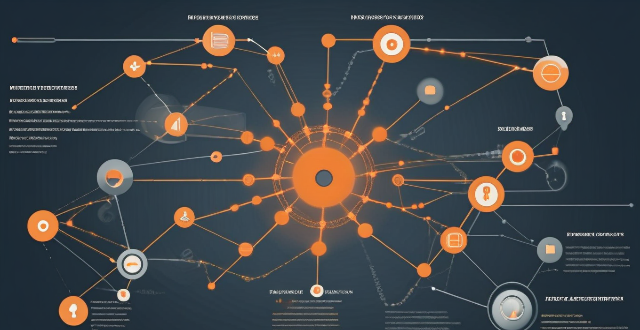
What industries will benefit the most from network slicing capabilities ?
The article discusses the concept of network slicing, a technology derived from software-defined networking (SDN) and network function virtualization (NFV), which allows the partitioning of physical networks into multiple virtual networks to optimize resource allocation according to specific service requirements. It outlines the key benefits and applications of network slicing in various sectors such as automotive, healthcare, manufacturing, energy, financial services, and entertainment and media. The conclusion highlights the potential of network slicing to revolutionize communication systems and enhance service delivery, operational efficiency, and user experience across different industries.
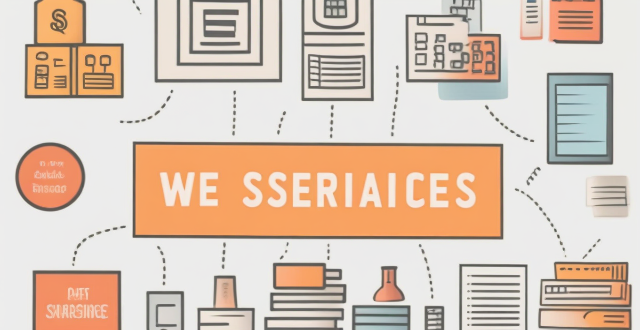
How can I compare different online shopping sites for their customer service ?
In this article, we discuss how to compare different online shopping sites for their customer service. The first step is to research and gather information by reading reviews and testimonials, checking social media presence, and asking for recommendations from friends or family. The second step is to analyze the information by comparing customer service options, evaluating response time, and assessing quality of service. The final step is to make a decision based on weighing pros and cons and trying before you buy. By following these steps, you can choose an online shopping site that offers excellent customer service and meets your needs.

Should I use a bank or a currency exchange service ?
When it comes to exchanging currencies, you have two main options: banks and currency exchange services. Both have their advantages and disadvantages, so it's important to consider your specific needs before making a decision. Advantages of Using a Bank: - Security: Banks are generally considered more secure than currency exchange services because they are regulated by government agencies. Your money is protected by insurance policies, such as the Federal Deposit Insurance Corporation (FDIC) in the United States. - Convenience: Many banks offer online and mobile banking services, allowing you to easily manage your account and make transactions from anywhere. You can also withdraw cash from ATMs worldwide without additional fees. - Fees: Banks typically charge lower fees for currency exchange compared to currency exchange services. Some banks even offer fee-free currency exchange if you have an account with them. Advantages of Using a Currency Exchange Service: - Better Exchange Rates: Currency exchange services often offer better exchange rates than banks because they specialize in foreign currency exchange. This means you can get more money for your currency than if you were to use a bank. - No Fees: Many currency exchange services do not charge any fees for exchanging currencies. However, some may still charge a small commission or service fee. - Speed: Currency exchange services are usually faster than banks when it comes to exchanging currencies. They often have shorter processing times and can provide you with the currency you need quickly. Disadvantages of Using a Bank: - Limited Availability: Not all banks offer foreign currency exchange services, especially smaller local banks. You may need to visit multiple banks to find one that offers this service. - Higher Fees: As mentioned earlier, banks typically charge higher fees for currency exchange compared to currency exchange services. This can add up quickly if you need to exchange large amounts of currency. Disadvantages of Using a Currency Exchange Service: - Security Risks: Currency exchange services are not regulated by government agencies like banks are. This means there is a higher risk of fraud or theft when using these services. - Limited Locations: Currency exchange services may not be available in all locations, especially in rural areas or smaller towns. You may need to travel to a larger city or airport to find one. - Limited Services: Currency exchange services typically only offer foreign currency exchange and do not provide other banking services like checking accounts or loans. If you need additional financial services, you will need to use a separate bank.

Are there any advantages to using a tax refund service company instead of doing it myself ?
Using a tax refund service company offers several advantages, including time-saving, accuracy, expertise, convenience, and peace of mind. These services can help maximize refunds or minimize tax liability by ensuring accurate tax preparation and staying up-to-date with changing tax laws and regulations.

How do I choose the right VPN service for my needs ?
Choosing the right VPN service is crucial for ensuring your online privacy, security, and accessing geo-restricted content. Here's a guide to help you make an informed decision: 1. Identify Your Needs: Determine what you need the VPN service for, such as privacy and security, accessing geo-restricted content, bypassing censorship, or improving gaming experience. 2. Check the VPN's Location and Jurisdiction: The legal jurisdiction of the VPN provider plays a significant role in your privacy. Look for providers located in countries without strict data retention laws. 3. Encryption and Protocols: The level of encryption and the protocols offered are critical for security. OpenVPN and IKEv2 are considered the most secure and efficient. Avoid VPNs that rely on PPTP or L2TP/IPSec without a separate encryption layer. 4. Server Network and Speed: A vast network of servers worldwide ensures better speed and connectivity. Look for a VPN with numerous servers across different continents. Speed is also crucial, especially if you plan to stream HD videos or download large files. 5. Privacy Policy and Logging: A strict no-logs policy is vital for maintaining your privacy. Always check the privacy policy to ensure they don't collect or share your data. 6. Device Compatibility and User Interface: Choose a VPN that supports all your devices, including smartphones, tablets, and PCs. A user-friendly interface makes it easier to connect and manage your VPN settings. 7. Customer Support: Look for VPNs that offer 24/7 live chat support or at least a responsive ticket system. Good customer service can help resolve technical issues quickly. 8. Price and Value for Money: While free VPNs might seem appealing, they often come with limitations, such as data caps and slower speeds. Paid VPNs offer more features and better performance. Consider the cost against the services provided to determine the best value. 9. Reputation and Reviews: Research the VPN's reputation through reviews and forums. Feedback from other users can provide insights into the reliability and effectiveness of the service. 10. Legal and Ethical Considerations: Ensure that the VPN service you choose complies with local laws and ethical standards. As per the statements from the Ministry of Industry and Information Technology, using a VPN for legitimate business purposes is protected under law. Always use VPNs responsibly and for legitimate purposes. In conclusion, choosing the right VPN service requires careful consideration of your needs, the provider's security measures, server network, privacy policy, device compatibility, customer support, and cost. By following these guidelines, you can find a VPN service that meets your requirements while ensuring your online privacy and security.

What are the benefits of using a package forwarding service for international shopping ?
**Benefits of Using a Package Forwarding Service for International Shopping** Using a package forwarding service offers several benefits for international shoppers, including cost savings, increased shopping flexibility, potential tax and duty advantages, convenience, additional services, and peace of mind. These advantages make it easier and more efficient to shop from retailers around the globe without directly facing the complexities of international shipping.

What happens to my Apple ID after cancelling an Apple service or product subscription ?
Cancelling an Apple service or product subscription does not affect your Apple ID account. Your Apple ID remains active and you can continue to use it for other services and products offered by Apple. However, the specific service or product that you cancelled will no longer be available to you.

How do I set up a VPN service on my computer or mobile device ?
Setting up a VPN (Virtual Private Network) is an excellent way to ensure your online privacy, bypass geo-restrictions, and enhance your security on the internet. Here's a detailed guide to setting up a VPN service on your computer or mobile device: 1. Choose a VPN Service Provider: Research and select a reliable VPN service that suits your needs in terms of security, speed, and price. Ensure the provider offers apps for your operating system, whether it's Windows, macOS, Android, or iOS. 2. Sign Up for the Service: Visit the VPN service website and sign up for an account. Choose a payment plan and complete the subscription process. 3. Download and Install the VPN App: Once you have subscribed, download the VPN app from your provider's website or your device's app store. Install the app on your device following the standard installation procedures. 4. Configure the VPN App: Open the VPN app and log in using your account credentials. Select a server location; usually, the app will recommend the fastest or closest server to you. Customize the settings if needed, such as enabling startup with Windows or configuring the kill switch feature. 5. Connect to the VPN: Click the connect button in the VPN app to establish a connection to the chosen server. A secure and encrypted tunnel will be created between your device and the server. 6. Verify the VPN Connection: Check your IP address and location using online services like `ipleak.net` to ensure your real identity is concealed. Test the connection by trying to access content that is normally blocked in your region. 7. Troubleshooting: If you encounter connection issues, check your network settings or try connecting to a different server. Make sure your firewall and antivirus software are not blocking the VPN connection. 8. Regular Maintenance and Updates: Keep your VPN app updated to benefit from the latest security features and performance improvements. Monitor your data usage if your VPN service has bandwidth limitations. Additional Considerations: Look for VPN services that offer strong encryption protocols like OpenVPN or IKEv2 for maximum security. Ensure that your VPN service has a strict no-logs policy to protect your online activities from being recorded. Some VPN services allow multiple devices to be connected simultaneously under one account – consider this feature if you use multiple devices.

What type of customer service can I expect at a high-end resort ?
When you visit a high-end resort, you can expect to receive exceptional customer service. The staff at these establishments are trained to provide personalized attention and ensure that your stay is comfortable and enjoyable. Some of the services you can expect include personalized attention, complimentary amenities, concierge services, room service, housekeeping services, and security and safety measures. Overall, a high-end resort will go above and beyond to make sure that your needs are met and that you have an unforgettable experience.

Which shopping apps have a strong focus on customer service and support ?
The provided text discusses the importance of customer service and support in shopping apps. It then goes on to highlight five notable shopping apps—Amazon, Shopify, Etsy, eBay, and Alibaba—that prioritize these aspects. Each app is described in terms of its unique features and services that enhance user experience. For Amazon, it's the live chat and email support, 24/7 availability, and the Mayday button for Fire devices users. Shopify is praised for its multichannel support, extensive knowledge base, and active community forums. Etsy is lauded for its personalized assistance, seller education, and resolution center. eBay's detailed resolution process, security measures, and seller protections are highlighted. Lastly, Alibaba is commended for its Trade Assurance program, legal services, and supplier verification. In conclusion, these shopping apps understand the significance of supporting their users throughout the shopping journey, each offering unique strengths in customer service and support.
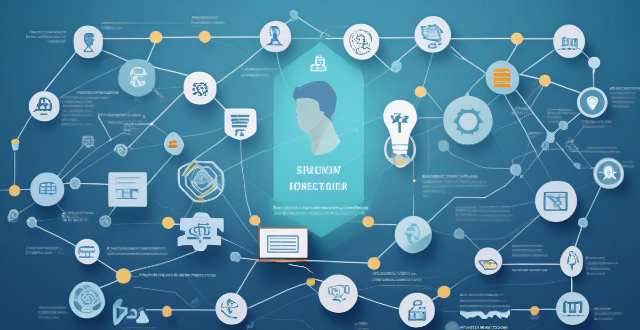
Can a VPN service protect me from hackers and cyber threats ?
VPN services create an encrypted connection over the Internet, allowing users to securely send and receive data as if their devices were on a private network. This enhances privacy by masking IP addresses, protects data on public Wi-Fi, and enables access to geo-restricted content. However, VPNs are not a complete cyber defense solution; they do not protect against all malware or phishing attacks. Trustworthiness of the provider is crucial, and legal and performance considerations should be noted. Responsible use includes pairing VPNs with other security measures and adhering to ethical guidelines. As technology advances, expect more sophisticated VPN services, but awareness about their role in cyber defense is also growing.

How can private sector participate in climate financing ?
Private sector participation in climate financing can take various forms, including direct investments in renewable energy projects, issuing green bonds or sustainable investment funds, carbon credit trading, R&D for innovative climate solutions, forming partnerships, adopting circular economy models, implementing eco-friendly business practices, maintaining transparency in environmental impact reporting, providing philanthropic support, and engaging employees in sustainability efforts. These actions not only mitigate climate change but also often improve corporate reputation and open new markets.

How do extreme weather events caused by climate change affect employment rates ?
This article explores the impact of extreme weather events caused by climate change on employment rates in various sectors, including agriculture, construction, and tourism. It highlights the vulnerability of these sectors to extreme weather events such as droughts, floods, heatwaves, hurricanes, tornadoes, wildfires, storms, rising sea levels, and reduced snowfall. The article also discusses potential mitigation strategies that can help reduce the impact of these events on employment rates in the affected sectors.

What are the major sources of climate finance and how are they allocated ?
The text discusses the main sources of climate finance, which include public sector funding, private sector investment, and multilateral institutions. Public sector funding is provided through government budgets, international climate funds, and domestic climate funds. Private sector investment comes from corporate sustainability initiatives, private climate funds, and impact investing. Multilateral institutions such as development banks, international financial institutions, and United Nations agencies also contribute to climate finance. These sources are crucial for supporting climate action globally, with allocations focused on reducing greenhouse gas emissions, adapting to the impacts of climate change, and promoting sustainable development.

How can we reduce greenhouse gas emissions from transportation sector ?
The transportation sector is a significant contributor to greenhouse gas emissions, and reducing these emissions is crucial for mitigating climate change. Strategies include encouraging public transportation, promoting electric vehicles, improving fuel economy and vehicle efficiency, developing alternative fuels, implementing policies and regulations, investing in sustainable urban planning, and raising awareness and education. By adopting these strategies, we can collectively work towards reducing greenhouse gas emissions from the transportation sector.
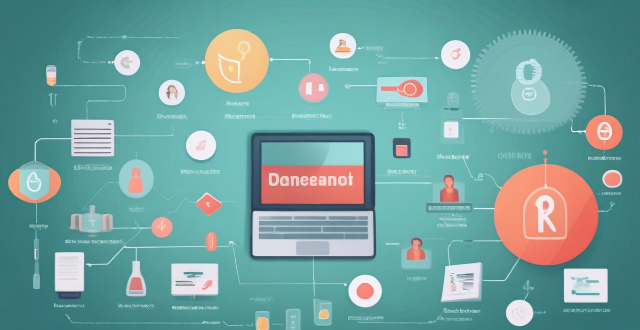
How can blockchain technology revolutionize the healthcare sector ?
Blockchain technology has the potential to revolutionize the healthcare sector by addressing key challenges such as data privacy, security, interoperability, and efficiency. Key features of blockchain include decentralization, transparency, immutability, and security. Applications of blockchain in healthcare include electronic health records management, drug supply chain management, clinical trials and research, health insurance claims processing, and telemedicine and remote monitoring. As more healthcare organizations adopt blockchain, we can expect significant improvements in patient care, research, and overall healthcare delivery.
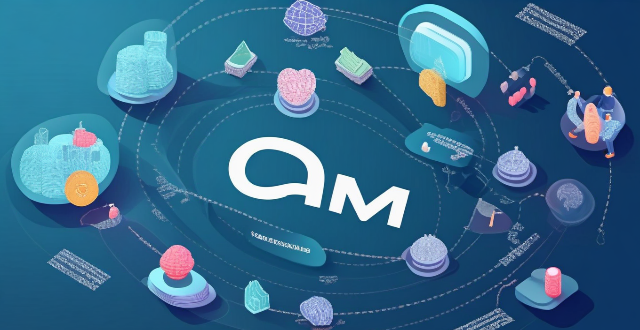
What are the benefits of using decentralized finance ?
Decentralized finance (DeFi) is a sector within the cryptocurrency space that aims to create an open-source, permission-less, and transparent financial service ecosystem using blockchain technology. It offers several benefits over traditional financial systems, including increased accessibility, lower costs, greater transparency, enhanced security, programmable money, improved efficiency, and financial inclusion. By eliminating intermediaries and reducing overhead costs, DeFi makes financial services more affordable and accessible to a wider audience. Its transparent ledger system reduces fraud and increases trust among participants, while its secure blockchain networks protect user funds. DeFi also enables programmable money, allowing for customized financial products and services, and improves efficiency by streamlining transaction processing. Ultimately, DeFi has the potential to revolutionize finance by democratizing access to essential financial services for underbanked populations and bridging the gap between developed and developing countries in terms of financial access.